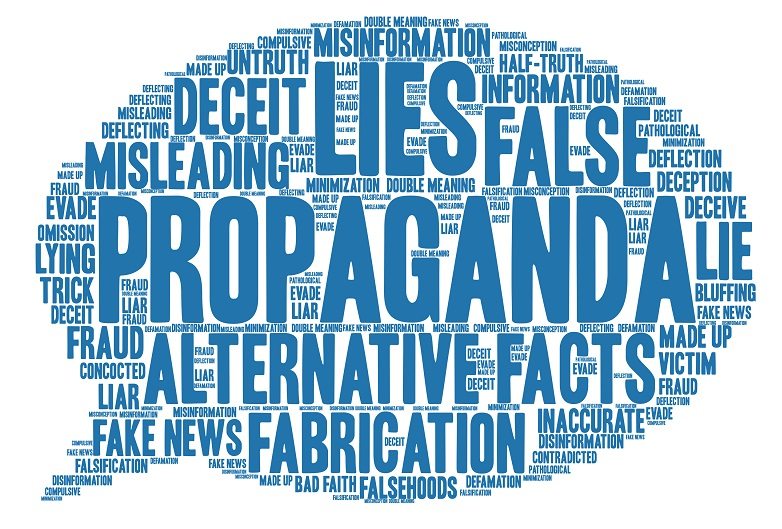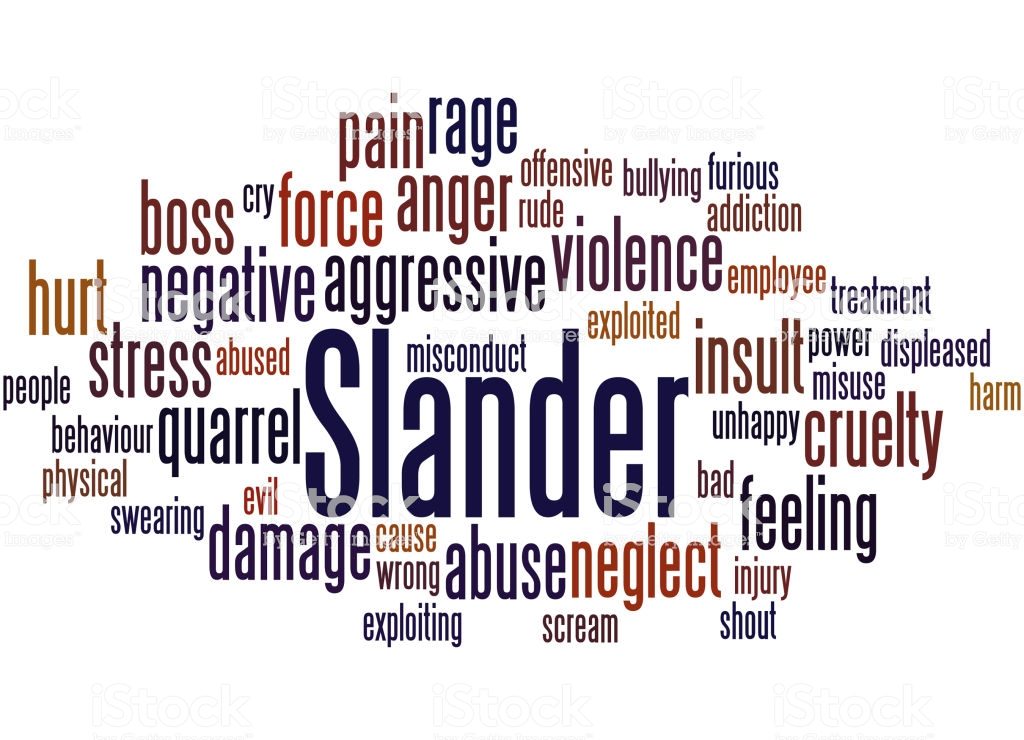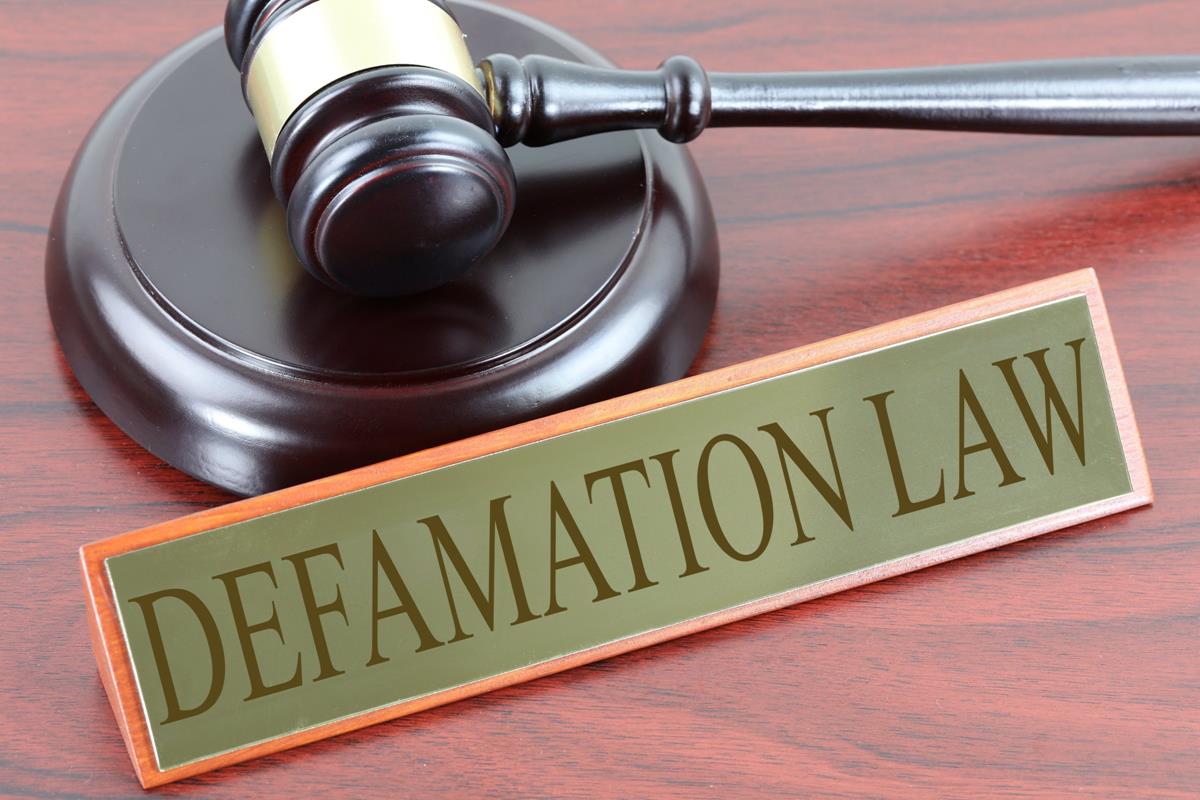Libel and slander both come under the umbrella of defamation, which is to attack someone’s character by making a false statement about that person and presenting it as irrefutable fact. For instance, if I were to say “John Smith stole from his workplace” while knowing full well that this is a lie, and that this will damage John Smith’s reputation, I am defaming him.
However, if I were to say this directly to John Smith – “John, you are a thief.” this would not be considered as defamation since I am not damaging his character or reputation in anyone else’s eyes. There is also a distinction between having a negative opinion of someone and defaming that person. For instance “I think John is weird.” is my personal opinion and cannot be proven as true or false in any empirical fashion. Regardless of how this may affect John, it cannot be considered defamatory.
Another important part of determining if there is defamation is the intent behind the statement being made. If the false statement was made knowing full well that it was false, or with reckless disregard for the truth (meaning the person who said it was unsure of the truth, but said it anyway to cause trouble), then it is clearly defamation. However, if an untrue statement is being presented from a third party with no agenda, for example, “Mike said that John Smith was a thief. I wonder if it is true.” this cannot be considered as defamation. It is for this reason that news reports will use the word ‘allegedly’ when reporting on people accused of criminal behavior. In this way, they are merely reporting without giving their own opinion.
So where to Libel and Slander fit in?
Libel and slander are both types of defamation, and differ solely on the medium by which they are presented. Libel is an untrue statement made in writing. Therefore, any untrue statement about a person in the press, on a blog-post, Facebook comment, Tweet or Instagram post are considered to be libel. Any false statements about a person made orally, whether that be on national television or a private conversation, would be considered slander.
There is also another category of defamation called sedition, which is when defamatory comments are made against a government or head of state with the explicit intention of causing civil unrest, rebellion or an uprising in the country. However, this type of defamation is a subject of much controversy as arguments can be made that having a gripe with the government cannot be considered anything other than an opinion or an example of free speech.

Suing for Damages of Defamation
Suing for slander, libel, or defamation involves proving in a court of law that the reputation of the person who has brought about the lawsuit was damaged by the conduct of the person who made the false statement. A libel or slander lawsuit seeks monetary damages for harm caused by the statement, such as pain and suffering, damage to the plaintiff’s reputation, lost wages or a loss of ability to earn a living, and personal emotional reactions such as shame, humiliation, and anxiety.
Defamation is an area of law that protects people’s reputations by allowing them recourse if false statements are made about them. This type of civil case is an effective way to protect your reputation. However, it is not sufficient that a defamatory statement be expressed. There must also be proof that real damage was caused.
Proving the damage
In order to prove that damage to your reputation has in fact occurred, along with your testimony, you would also be required to present witness testimonials that can confirm the damages. You could also provide evidence that you lost your job, were demoted or passed over for promotion, or were otherwise negatively impacted in a way that can be traced back to the defamatory statement.
To prove financial harm, you could testify to the monetary impact of the defamation, but you will need to back up these statements with other documents, such as bank statements or tax returns.
To prove mental or physical anguish, as well as your testimonial, you will be required to provide witness statements who can confirm the noticeable changes in you are a result of the incident. While you could provide statements from your spouse, relatives and close friends, your doctor or other treatment provider, if you sought treatment, would serve as a more reliable witness. You would be required to show that any mental or physical concerns were not pre-existing, and are in fact a direct consequence of the defamation. If your conditions were present prior to the incident, your doctor will then need to show that the defamation worsened your conditions. You may also want to produce medical bills to show how much the treatment has left you out of pocket.
One other thing to consider is that the opposing party will likely claim that your reputation was already tattered to begin with, or that whatever problems you claim to suffer from now were not caused by the alleged defamation. You will need to anticipate these tactics and provide witnesses or evidence to counter these arguments.

What you must remember is that someone expressing a negative opinion about you, or even relating an embarrassing anecdote or making fun of you is not the same as defamation. To understand the nuances, and to ensure that you have solid grounds to file a lawsuit, you should always consult an experienced personal injury lawyer, who will be able to advise you properly. The last thing you want is to sue someone for defamation, only to end up being sued yourself.

